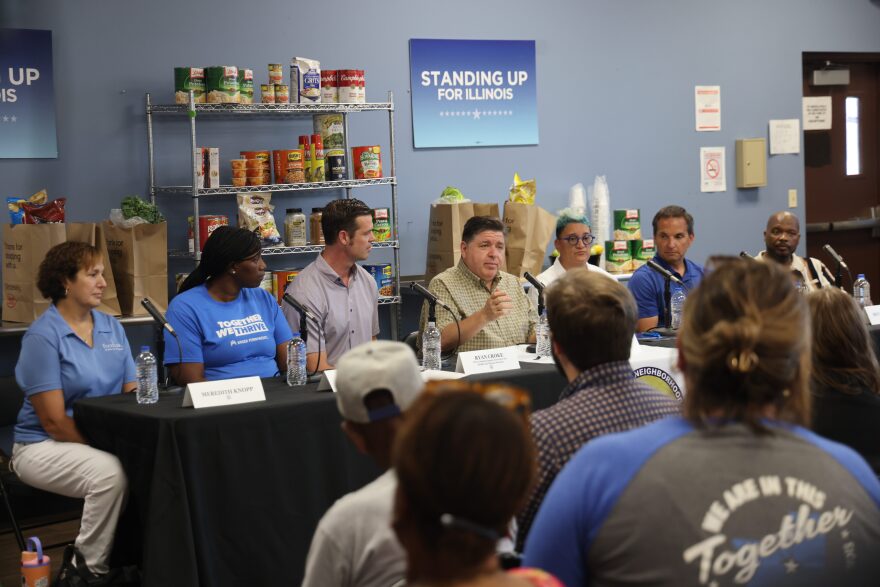Of the 47,000 St. Clair County residents eligible to receive food benefits via the Supplemental Nutrition Assistance Program, more than 10,000 are at serious risk of losing those benefits, according to Illinois Gov. JB Pritzker’s office.
After the Republican-controlled Congress recently cut SNAP funding by about 20% or $186 billion through the next decade, Pritzker said the effects will be harmful both for Illinoisans and the state’s budget.
“The most basic thing that we've got to do is make sure that people get fed and people get health care,” Pritzker said at a roundtable discussion in East St. Louis on Tuesday. “And if we can't do that, and if the federal government is going to hinder us doing that, I don't know how, as a society, that we can survive, and I don't know how families that are on the edge can survive.”
The leaders of Lessie Bates David Neighborhood House, an East St. Louis nonprofit, said more than 90% of those in the community who utilize their services are recipients of the program designed to help low-income Americans afford groceries.
“The lack of access to food — the lack of the access to means of buying food — will have a tremendous impact on our community, and we just cannot afford that in our community,” said the Rev. Gary Gaston, the nonprofit’s CEO. “We're already in an impoverished area, and our people are in need.”
Passed as part of the One Big Beautiful Bill, the changes to the legislation will require states to fund portions of the program and raise work requirements for those 18-54 years old to up to 64.
In fiscal 2025, 1.8 million Illinoisans utilized SNAP benefits, costing $4.7 billion, according to the governor’s office. With the changes, it’s estimated that Illinois will need to pay more than $700 million for the program.
Dulce Quintero, secretary of the Illinois Department of Human Services, which administers the program in the state, said Tuesday that she and her team are trying to make the documentation process needed to receive benefits smoother in Illinois, and they are working on ways to reduce the state match cost.
Pritzker said he also worries the changes will be detrimental for local grocery stores, especially in low-income communities, because SNAP recipients make up a sizable portion of their customer base.
“When we make it harder for grocery stores to stay open, we make it harder for our communities,” Pritzker said.







